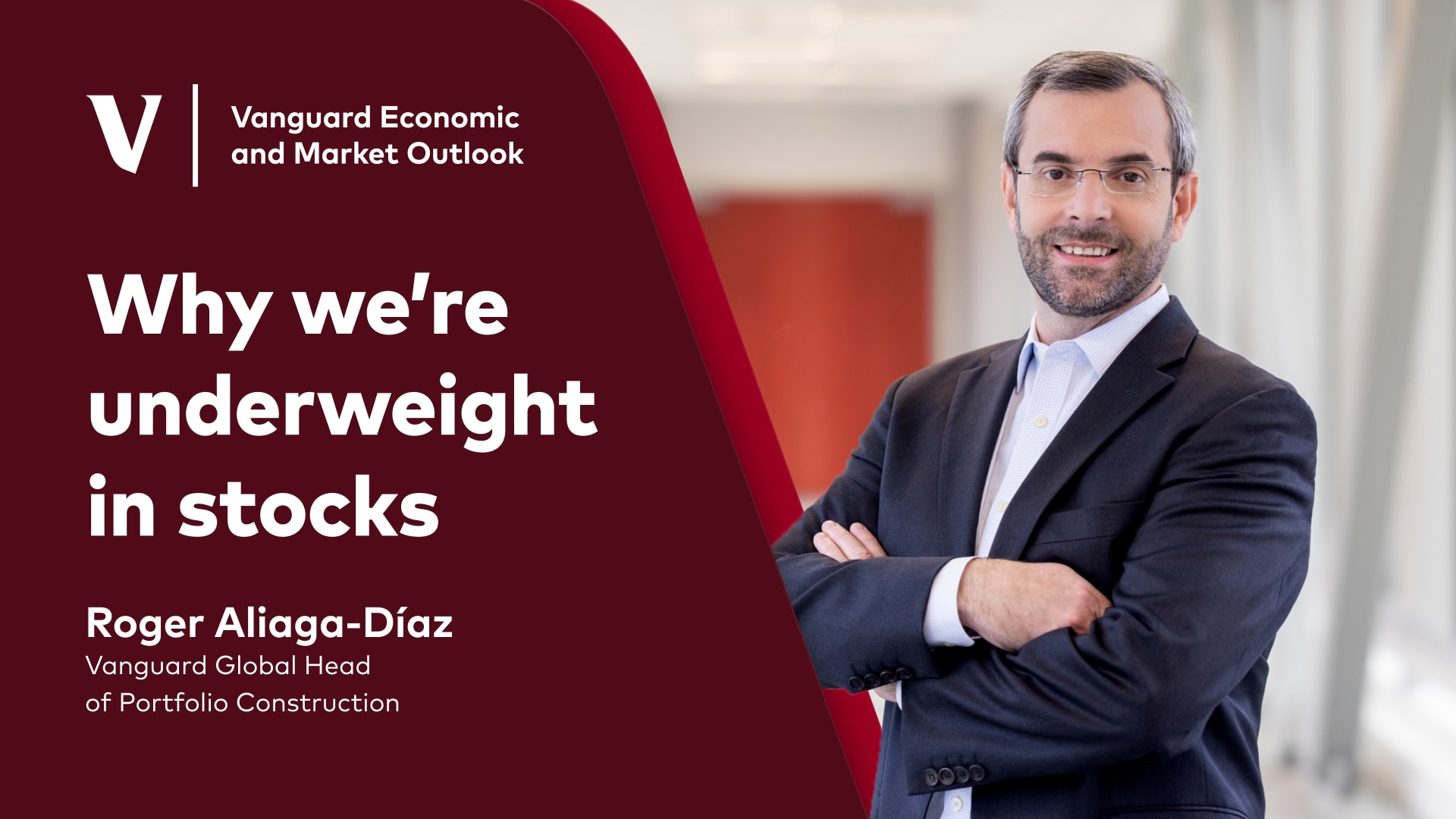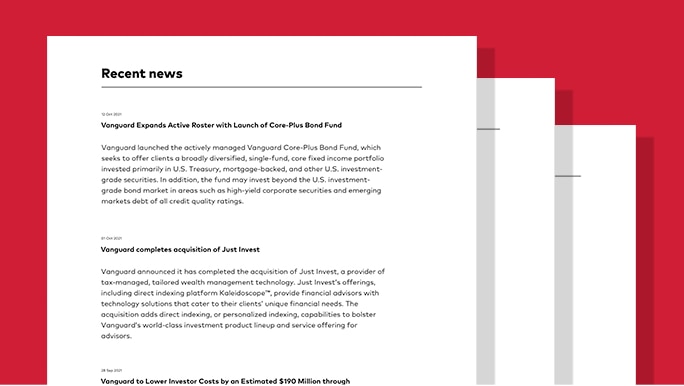
It’s personal: Our advice for investors and plan sponsors
Perspectives and news

Vanguard Investor Choice
What’s ahead for Vanguard Investor Choice in 2026?
Vanguard’s David Reiner discusses the program’s latest fund expansion and its continued evolution.
Our full library of perspectives
Beyond beta: Charting the evolution of index investing
Indexing has grown from a single strategy choice to offering diverse strategies for more tailored portfolios.
Jon Couture on culture and leadership in the age of AI
Jon Couture joins The Modern People Leader podcast to discuss culture, leadership, and change.
An optimistic but measured outlook for private equity
Over the coming decade, we expect high-quality private equity funds to outperform public equity portfolios.
Subscribe to Vanguard
Get Vanguard news, insights, and timely analysis on the market, delivered straight to your inbox.

Markets and economics

Economics & markets
Private credit’s third act: Reconnecting with banks
Our economic outlook examines the evolving private credit and commodities markets and what the future might hold.

How to invest your next dollar
Explore how AI investment, earnings trends, and valuation shifts are reshaping global markets and portfolio decisions.

How AI will reshape work, not replace it
Learn how AI-driven productivity gains will reshape work and accelerate growth across major service industries.

Why we're underweight in stocks
Investors may not be adequately rewarded for equity risk. Learn more about our model portfolio in this short video.







